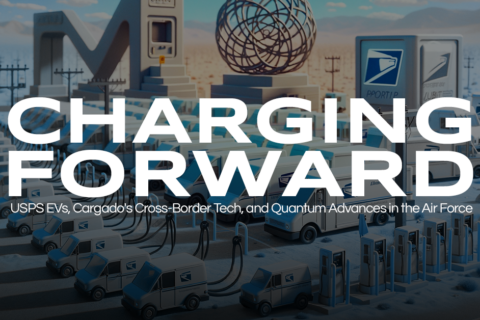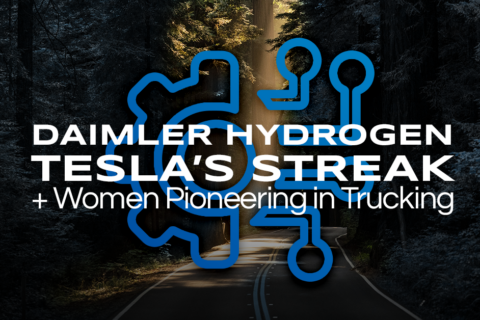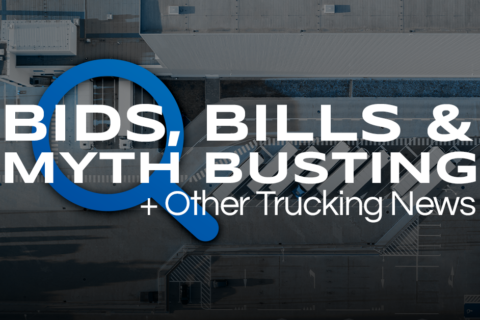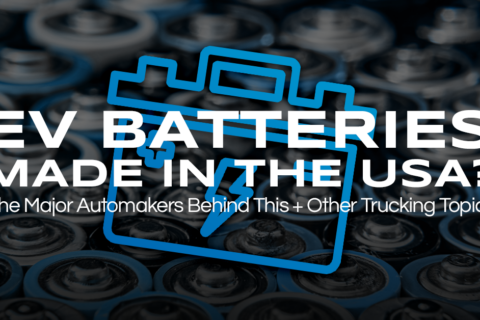Tech Mergers & Green Shifts: New Horizons in Trucking and Logistics
In the ever-evolving world of logistics and trucking, staying ahead means not just keeping up with the latest trends but also navigating through the intricate dance of strategic decisions and market shifts. This week, we turn our spotlight on a series of developments that have the potential to reshape the logistics sector, from groundbreaking mergers and acquisitions to the evolving role of clean energy in transportation and the tumultuous journey of a trucking giant grappling with financial and labor challenges. Whether it’s the consolidation of tech-driven logistics companies, the strategic pivot in the clean energy sector, or the complexities of corporate finance amidst labor disputes, these stories offer a comprehensive look into the dynamics that drive the trucking and logistics industry forward. Strategic Moves in Logistics In a bold move to consolidate the tech-focused logistics sector, CDL 1000 has acquired its competitor Next Trucking through an equity deal. This pivotal acquisition not only marks a significant step towards consolidation in the industry but also highlights the ongoing struggles faced by technology-driven firms in matching trucks with shipments efficiently. By melding CDL 1000’s expertise in managing short-haul loads between seaports and warehouses with Next Trucking’s specialized services in the bustling container ports of Los Angeles and Long Beach, the merger promises to create a formidable force in the logistics domain. This deal follows CDL 1000’s strategic acquisition of Hickory Transportation Services, further expanding its service offerings and national footprint. Navigating Industry Headwinds The logistics industry, particularly the segment focused on using technology to streamline shipping operations, has faced nearly two years of challenges, exacerbated by a prolonged downturn and high interest rates hampering funding opportunities. Noteworthy is the shuttering of Seattle-based Convoy, despite its once-promising valuation and backing from tech moguls. This environment underscores the difficulties faced by venture-backed digital freight brokers in securing new investments, as exemplified by Transfix’s withdrawal from a public offering plan. However, CDL 1000’s latest acquisition, supported by notable investors like Brookfield Growth and Mucker Capital, suggests a strategic pivot towards leveraging acquisitions to overcome these challenges and spearhead the digital transformation of the logistics sector. 🔗 Learn more about the impact of technology in logistics here Hydrogen’s Narrowed Path Shell’s strategic pivot away from hydrogen fuel stations for light-duty vehicles, like passenger cars, in California marks a significant shift in the clean energy landscape. With the closure of all seven retail hydrogen filling stations, Shell is reinforcing the notion that hydrogen fuel may not be the future for passenger vehicles. This decision contrasts sharply with the expansion of electric vehicle (EV) charging infrastructure, where California boasts over 2,000 public DC fast-charging sites. Despite the initial promise and significant investment, including a collaborative effort named “Project Neptune” aimed at expanding hydrogen fueling stations with major automakers’ support, the reality has set in. Hydrogen’s role in light-duty transportation appears increasingly limited, overshadowed by the rapid growth and accessibility of EV charging networks. Heavy-Duty, Hydrogen’s Haven However, the story takes a different turn when it comes to heavy-duty transportation. Hydrogen fuel cells present a viable solution for class 8 drayage and garbage trucks, where battery weight significantly impacts vehicle efficiency and payload capacity. Companies like Hyzon Motors are leading the charge, delivering hydrogen fuel cell trucks that offer a competitive edge over battery-powered counterparts in terms of weight and, consequently, profitability. These developments highlight a focused niche for hydrogen fuel cell technology—supporting fixed-route, heavy-duty vehicles that can benefit from centralized refueling infrastructure. This specialization suggests a sustainable, albeit more limited, role for hydrogen in decarbonizing sectors of transportation where batteries fall short, ensuring hydrogen’s relevance in the clean energy transition remains intact, albeit on a more targeted scale. 🔗 Learn more about the evolving role of hydrogen in transportation here. A Bumpy Road to Repayment Yellow Corp., the historic trucking giant, continues grappling with their shocking 2023 bankruptcy, managing to settle its $700 million Covid-19 loan with the U.S. Treasury Department, alongside an additional $151 million in interest. This repayment follows a federal bankruptcy judge’s decision allowing Yellow to liquidate most of its assets for nearly $1.9 billion, signaling a significant step towards addressing its financial woes. However, the company’s efforts have been overshadowed by criticism from the Teamsters union, representing Yellow’s workforce. The union has highlighted the disparity between the executives’ financial bonuses and the sacrifices made by employees, including wage and pension concessions amounting to $5 billion over a decade, which have yet to be reimbursed to the workers. Controversy and Criticism The heart of the controversy lies not only in the repayment but in the origins of the loan itself, which was secured under the CARES Act for companies deemed “critical to maintaining national security.” Despite the Defense Department’s reservations about Yellow’s qualification for this criterion, the loan was pushed through by top Trump administration officials. Amidst these financial maneuvers, Yellow’s management has pointed fingers at the Teamsters union for contributing to a liquidity crisis by not deferring benefit payments, a claim that has only added fuel to the ongoing dispute between management and labor. The union counters by accusing Yellow’s leadership of mismanagement and prioritizing executive bonuses over the company’s and employees’ long-term health. This saga reflects not just a company’s struggle to stay afloat but also a broader narrative of labor disputes and financial accountability in times of crisis. 🔗 Learn more about the Yellow Corp. financial and labor controversies here. Before You Hit The Road… Thank you for navigating this week’s news hits journey, we hope you’ve enjoyed this comprehensive view into strategic decisions and their ripple effects across the logistics and trucking sectors. The acquisition of Next Trucking by CDL 1000, signaling a significant consolidation in the tech-driven logistics space, has been underscored. The challenges and strategic pivots within the industry, especially in the context of technological integration and financial headwinds, were explored. Additionally, the evolving role of hydrogen in transportation, particularly its targeted application in heavy-duty vehicles, was highlighted, contrasting with the broader trends in clean energy. The saga…











Recent Comments